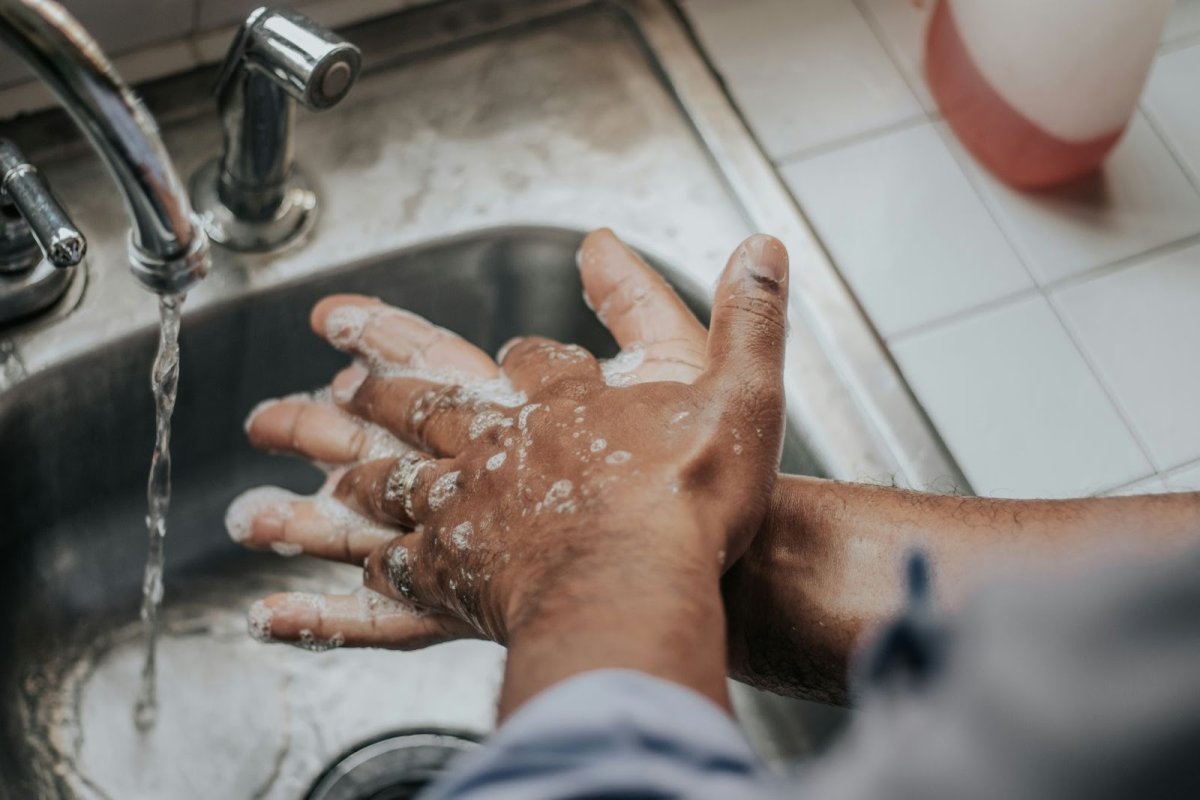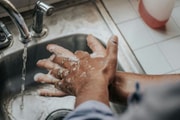
We all want to feel our best and stay healthy, so it’s no surprise that many of us turn to big lifestyle changes—joining a gym, eating more vegetables, or finally committing to that yoga routine.
And hey—those are all great steps. But what if one of the most powerful habits for your health isn’t something new at all? What if it’s something you learned way back in childhood, takes less than a minute, and doesn’t cost a single cent?
It’s simple, it’s science-backed, and chances are, you’re overlooking it. Ready to find out what it is?
Why hand washing matters more than ever
It might sound simple, but hand hygiene is a true unsung hero in the fight against illness—especially for adults over 60, who are more vulnerable to nasty bugs making the rounds.
With a bumper crop of viruses doing the rounds this year—including COVID-19, influenza, RSV, whooping cough, and the dreaded norovirus—there’s never been a better time to brush up on your hand-washing skills.
You might think, “I’ve been washing my hands for decades—surely I’m doing it right!”
But many of us are a bit too quick at the sink, or skip the soap when we’re in a hurry. And with germs lurking on every surface (yes, even that innocent-looking café table), a quick rinse just won’t cut it.
Here’s the reality: viruses like norovirus can survive on surfaces for up to two weeks, waiting for their next unsuspecting victim. And while we might resign ourselves to “catching something” every winter, the truth is that proper hand hygiene can dramatically reduce your risk—and help protect your loved ones, too.
The gold standard: How to wash your hands properly
Let’s get back to basics. Here’s the step-by-step, gold-standard method recommended by health experts:
- Wet your hands with clean, running water—warm or cold will do.
- Turn off the tap and apply soap.
- Lather thoroughly. Rub your hands together, making sure to clean the backs, between your fingers, and under your nails.
- Scrub for at least 20 seconds. (Tip: Try humming “Happy Birthday” twice to keep time.)
- Rinse well under running water.
- Dry completely using a clean towel or an air dryer.
It’s not just about frequency—it’s about technique. And don’t forget: after you’ve washed, try to avoid touching the tap or door handle with your clean hands. Use a paper towel if you can!
When Should You Wash Your Hands?
You likely already know the basics—like washing your hands after using the restroom or before sitting down to eat. But there are plenty of other moments throughout the day when a quick scrub can make a big difference.
Here’s a practical checklist to help you stay ahead of germs and keep your hands clean when it matters most:
- Before, while, and after handling food
- Before and after meals or snacks
- Before and after helping someone who is ill
- Before and after cleaning or dressing wounds
- After using the bathroom or changing diapers
- After sneezing, coughing, or wiping your nose
- After petting animals or cleaning up after them
- After taking out the trash or handling pet food
Hand sanitizer: Friend or foe?
Hand sanitizer has earned a permanent spot in purses and pockets since the pandemic—and for good reason. It’s a convenient option when you’re on the go and can’t get to a sink.
But here’s the catch: it’s not foolproof. Certain viruses, like norovirus, have a hardy outer layer that makes them tough to kill with alcohol-based sanitizers alone.
That’s why good old-fashioned soap and water remains the gold standard, especially after using the restroom or before handling food.
When it comes to hygiene, a thorough wash still wins.
If you’re reaching for a hand sanitizer, check that it’s at least 60% alcohol for it to be effective. Apply enough to cover your hands and rub thoroughly until they’re completely dry.
Just keep in mind—sanitizer is a helpful backup when soap and water aren’t available, but it’s not a full substitute.
Beyond hand hygiene: Other ways to stay healthy
While washing your hands is a health hero, it’s just one piece of the wellness puzzle.
Here are a few more smart habits to help you stay strong this season:
- Keep your vaccinations current, including your flu shot and COVID-19 boosters, to lower your risk of serious illness.
- Breathe easier by improving indoor air flow: crack open windows, use air purifiers, or enjoy time outside.
- Feeling under the weather with symptoms like fever, cough, or stomach upset? Take a break and stay home to recover and protect those around you.
- Regularly disinfect high-touch surfaces, especially in shared spaces like kitchens and bathrooms.
A little effort, big rewards
It’s easy to overlook the basics, but sometimes the simplest habits make the biggest difference. By making hand washing a priority, you’re not just looking after yourself—you’re helping to keep your family, friends, and community healthy, too.
Do you have any hand-washing tips or stories to share? Have you noticed a difference in your health since being more mindful about hygiene? Drop a comment below and let’s keep the conversation going—because when it comes to staying well, we’re all in this together.






